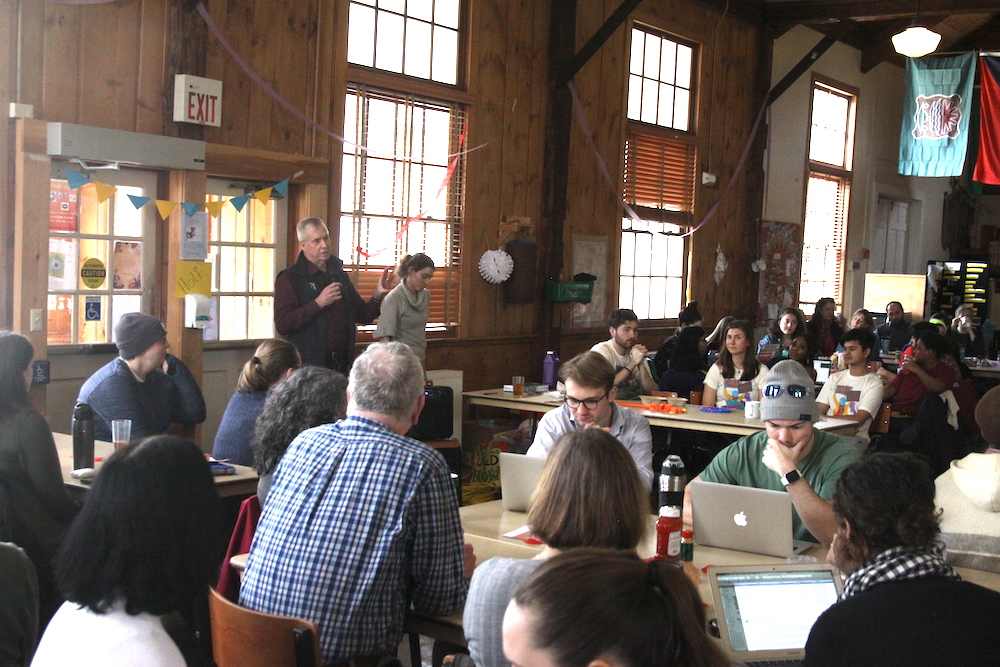Marlboro Responds to Coronavirus Crisis
 Like every college or university in the United States, indeed around the world, Marlboro faced immense challenges this spring semester because of the emerging COVID-19 outbreak, ultimately a global pandemic. Starting with baby steps just before spring break, the college’s response would ultimately result in shutting down the campus for the rest of the semester, a move that took speedy and proactive efforts on several fronts.
Like every college or university in the United States, indeed around the world, Marlboro faced immense challenges this spring semester because of the emerging COVID-19 outbreak, ultimately a global pandemic. Starting with baby steps just before spring break, the college’s response would ultimately result in shutting down the campus for the rest of the semester, a move that took speedy and proactive efforts on several fronts.
On March 19, most staff began to work remotely and Vermont Governor Phil Scott ordered all non-emergency, non-essential individuals to stay at home the following week. Even seniors who were staying on campus to complete their Plans were only able to stay until March 22. Instead of returning to campus after spring break on March 29, all students and faculty began engaging in online classes and tutorials with support from the IT department.
“Like any other year, this was the time to start the exhilarating and always fascinating race to finish the semester,” said President Kevin Quigley. “Witnessing the flowering of senior Plans leading up to commencement remains one of the great joys of being a part of the Marlboro community. This year felt very different, but held the same promise for academic accomplishment and closure for these students.”
Despite the challenges, classes and tutorials met at their usual times using online platforms, and advisors, staff, and student tutors continued to support students and help them make the most of this transition to remote learning. Student life staff remained vigilant to the needs of students, providing virtual programming like movie and game nights, workshops, shared meals, and other ways to stay connected. The Outdoor Program continued to encourage ways to get outside and stay healthy, in mind and body, during this challenging time.
The college even took positive role in the local community, donated masks and other personal protective equipment from the Total Health Center to the Springfield Medical Care system, Brattleboro Memorial Hospital, and local first responders. Additionally, the college worked with Metz, our food service company, to distribute the remaining food from the dining hall to local organizations, including the Marlboro Community Center, Chester Helping Hands, and local food shelves, to help feed those who found themselves food insecure.
The timing could not be much worse, of course, as the COVID-19 crisis was coupled with the imminent Emerson alliance to make for a very difficult end-of-year transition for the campus community. Despite all of these challenges, the community generally—and especially graduating seniors—demonstrated the very best of Marlboro’s spirit of resilience and creativity.
